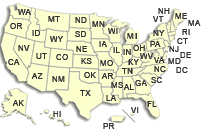Toward a scientifically rigorous basis for developing mapped ecological regions
Journal Article
By Gerard McMahon, Edward B. Wiken, and David A. Gauthier
Full Journal Article (14 pages, 1.6M)
Abstract
Despite the wide use of ecological regions in conservation and resource-management evaluations and assessments, a commonly accepted theoretical basis for ecological regionalization does not exist. This fact, along with the paucity of focus on ecological regionalization by professional associations, journals, and faculties, has inhibited the advancement of a broadly acceptable scientific basis for the development, use, and verification of ecological regions. The central contention of this article is that ecological regions should improve our understanding of geographic and ecological phenomena associated with biotic and abiotic processes occurring in individual regions and also of processes characteristic of interactions and dependencies among multiple regions. Research associated with any ecoregional framework should facilitate development of hypotheses about ecological phenomena and dominant landscape elements associated with these phenomena, how these phenomena are structured in space, and how they function in a hierarchy. Success in addressing the research recommendations outlined in this article cannot occur within an ad hoc, largely uncoordinated research environment. Successful implementation of this plan will require activities--coordination, funding, and education--that are both scientific and administrative in nature. Perhaps the most important element of an infrastructure to support the scientific work of ecoregionalization would be a national or international authority similar to the Water and Science Technology Board of the National Academy of Sciences.
Citation:
McMahon, Gerard, Wiken, E.B., and Gauthier, D.A., 2004, Toward a scientifically rigorous basis for developing mapped ecological regions: Environmental Management, v. 34, suppl. 1, p. S111-S124.
|
For more information, contact |
To order printed copies |
North Carolina Water Science Center
U.S. Geological Survey
3916 Sunset Ridge Road
Raleigh, North Carolina 27607
(919) 571-4000
E-mail
|
|
|
